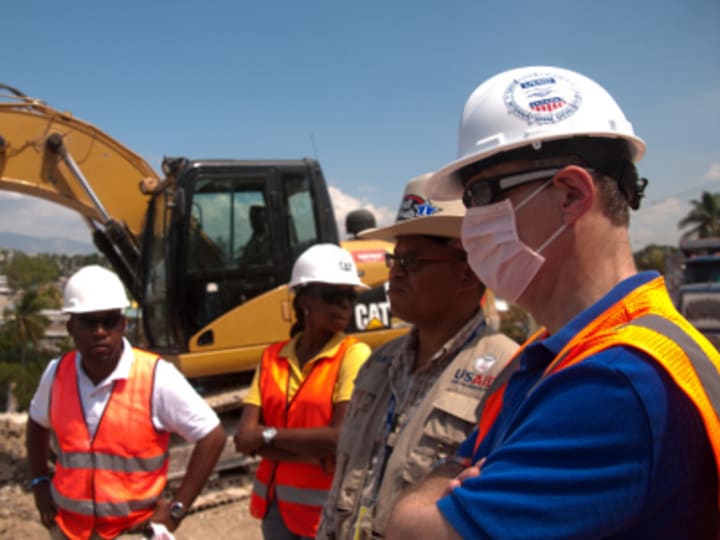
Two separate updates on U.S.-backed activities in Haiti provide a glimpse of where the U.S. Agency for International Development is making progress and where it is lagging behind in supporting the Caribbean country’s development.
Gary Juste, chief of USAID Haiti’s Office of Acquisition and Assistance, reports that more than 40 percent of USAID funding disbursed between March 2011 and April 2012 was directed to “non-traditional USAID partners” or those that have never before received funds from the agency.
This is in line with procurement reforms outlined in the agency’s reform agenda dubbed USAID Forward. The agenda calls for a shift toward direct engagement with organizations and government systems of recipient countries.
Juste does note that implementing this shift is not without challenges, particularly when it comes to ensuring local partners are capable of managing U.S. aid dollars and projects.
That’s why USAID is “making very deliberate efforts to build the capacity” of new partners to directly receive U.S. funds in the future, Juste says. He adds that the agency prioritizes existing subawardees of main USAID contractors.
USAID has similar efforts to improve the capacity of potential partners in other countries such as Pakistan, where the agency has a program dubbed Assessment and Strengthening Program. The implementation of this program recently came under close scrutiny after USAID’s Office of the Inspector General found that it was not meeting its targets.
Another recent OIG report, meanwhile, gave USAID a failing grade for one of its programs in Haiti. The second phase of the Haiti Recovery Initiative, or HRI-II, lacks a sufficient monitoring and evaluation system, does not engage local communities enough and failed to meet a number of targets, the audit said.
In its response to the report, USAID’s Haiti mission and the Office of Transition Initiatives agreed with all of OIG’s recommendation and set out timetables on when it plans to accomplish these.
Two experts from the U.S.-based think tank Center for Global Development , meanwhile, add recommendations of their own and stress the need to actually implement the report’s recommendation.
“We still believe publishing data through IATI and piloting competitive bidding would help track the money and progress in Haiti,” write Vijaya Ramachandran and Julie Walz. “To do this, USAID will likely need to invest more resources (including staff time) in ensuring that NGOs, private contractors and other recipients of taxpayer funds actually deliver the services they have promised.”
Read more:
Read more on U.S. aid reform online, and subscribe to The Development Newswire to receive top international development headlines from the world’s leading donors, news sources and opinion leaders — emailed to you FREE every business day.




